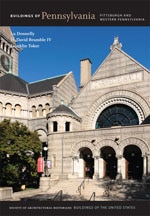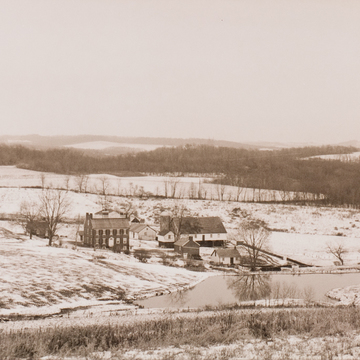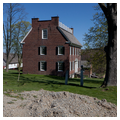One of the best preserved and most architecturally significant farms in the region nestles into a well-watered scoop of land with space for cultivation and grazing. Isaac Manchester, a carpenter from Newport, Rhode Island, traveling along the Wellsburg Pike (PA 844), spotted the site already called “Plantation Plenty” and purchased it in 1797. The Manchester descendants have farmed it ever since. The house was built by 1815, with the joinery completed by Philadelphian John McGowen. The two-and-one-half-story red brick house has Flemish bond brickwork on all elevations, dressed stonework at the foundation, massive brick chimneys at each gable end, and a captain's walk on the rooftop. The interior has a central-hall plan, with a basement kitchen at the downhill corner and a large single room under the eaves. The farm is sited in its valley not for the aesthetics, but to keep it out of the wind and close to springwater. The Pennsylvania-type timber-frame barn dates from 1803, with some alterations over the years. Outbuildings contained within stone boundary walls house many early farm implements, including carpentry tools used in the construction of the house and barn. Despite its sturdy utilitarian functioning, the house is a sophisticated eastern seaboard transplant far from the shores of Narragansett Bay. Acknowledging his accomplishment, Manchester's initials and the date the house was completed are carved in the stone parapet at the roofline.
You are here
Isaac Manchester House, “Plantation Plenty”
If SAH Archipedia has been useful to you, please consider supporting it.
SAH Archipedia tells the story of the United States through its buildings, landscapes, and cities. This freely available resource empowers the public with authoritative knowledge that deepens their understanding and appreciation of the built environment. But the Society of Architectural Historians, which created SAH Archipedia with University of Virginia Press, needs your support to maintain the high-caliber research, writing, photography, cartography, editing, design, and programming that make SAH Archipedia a trusted online resource available to all who value the history of place, heritage tourism, and learning.











